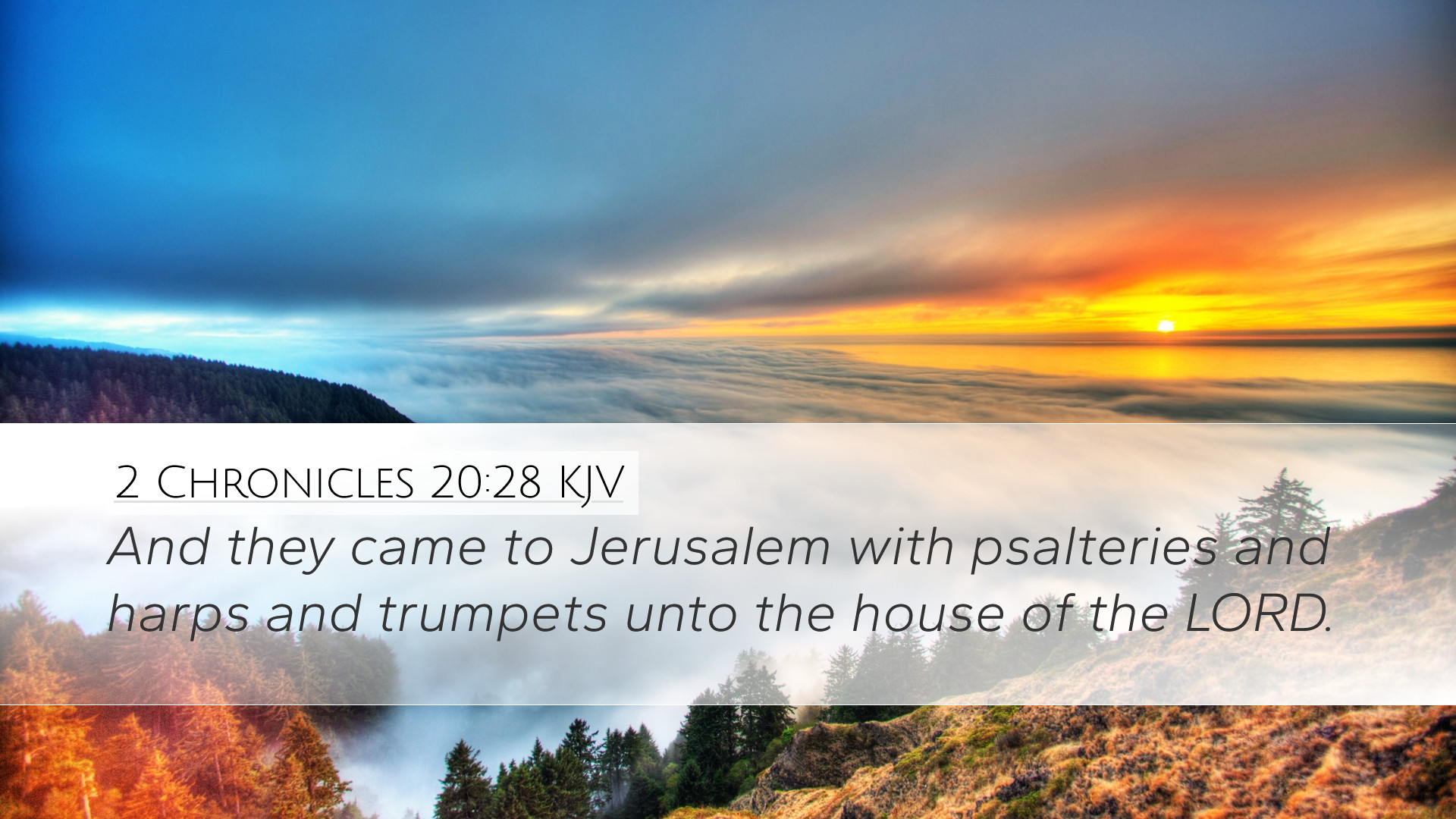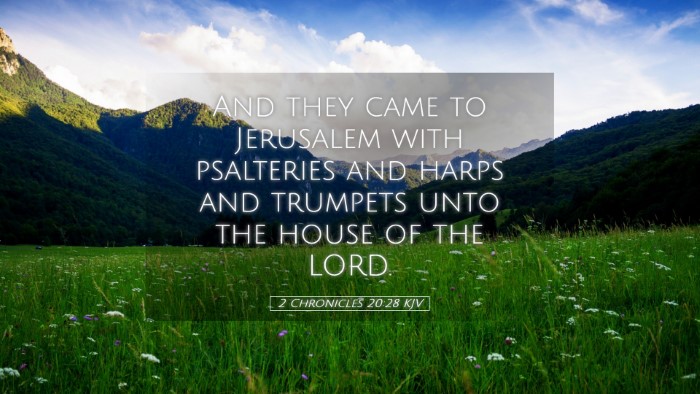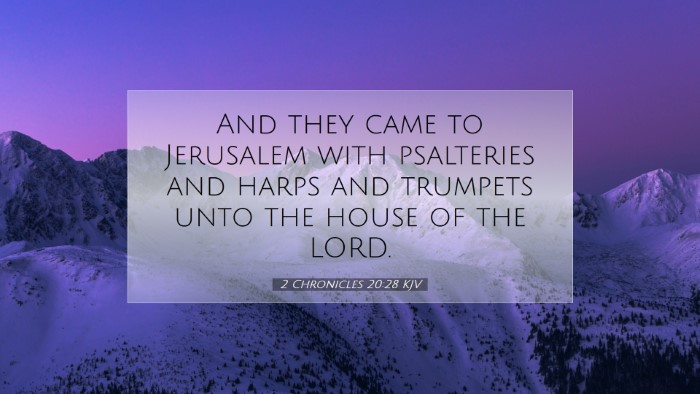Commentary Summary
This verse marks a triumphant return to Jerusalem after a remarkable victory delivered by God. The context involves King Jehoshaphat and the people of Judah, who experienced the miraculous intervention of the Lord against their enemies. This act of celebration is steeped in significance and requires a thorough understanding to appreciate its implications for worship, community life, and divine intervention.
Historical Context
In the preceding chapters, we see Jehoshaphat faced with overwhelming odds from a coalition of enemies (2 Chronicles 20:1-4). His reliance on prayer and seeking the Lord’s guidance led to prophetic assurance that the Lord would fight for them. This historical backdrop emphasizes the necessity of divine intervention and reinforces the theme of reliance on God amid adversity.
Worship as a Response to Deliverance
The culmination of divine deliverance is expressed through worship. Matthew Henry comments on the act of singing and playing instruments as vital expressions of gratitude and joy after a spiritual victory. Worship serves as a communal acknowledgment of God’s sovereignty and mercy.
Expression of Praise
As King Jehoshaphat and his people return to Jerusalem, they bring with them instruments — stringed instruments, harps, and trumpets — signifying a multifaceted expression of praise. Albert Barnes notes that the inclusion of musical instruments in worship enhances the aesthetic nature of psalms and praises, indicating a heart overflowing with thankfulness and reverence towards God.
Corporate Worship
This gathering also highlights the essential principle of corporate worship as an integral aspect of community life. The public nature of their celebration reinforces the unity of the people of Judah. Adam Clarke remarks on the importance of community in worship; it is not merely a personal affair but a collective declaration of faith and gratitude.
Theological Insights
This verse encapsulates a critical theological imperative — the recognition of God’s active role in the lives of His people. The act of returning with instruments signifies acknowledgment that their victory was not through might or personal strength but through divine providence. Theologically, one might explore the implications of worship in light of God’s salvation history and its ongoing relevance in Christian life.
Victory Through Worship
The very act of celebrating with music reflects a deeper understanding of victory beyond physical battles. It underscores a spiritual victory that is rooted in trust and reliance on God. This teaches contemporary believers that worship is both a reaction to God’s saving acts and a proactive stance in faith.
Implications for Today’s Church
Modern congregations can draw vital lessons from this passage. The practice of worship should be characterized by enthusiasm and heartfelt expression. Drawing from Henry, it’s essential for churches to recognize the power and importance of music and praise in corporate gatherings. The participatory nature of worship mirrors the communal aspect seen in the gathering at Jerusalem.
Instruments in Worship
The use of musical instruments remains a point of discussion within many churches today. Clarke emphasizes the value of diverse forms of expression in praise. As churches strive to create environments conducive to worship, they must consider how the arts — music, dance, visual expressions — can enrich the worship experience.
Conclusion
2 Chronicles 20:28 reminds believers of the essential connection between divine intervention and corporate worship. The act of returning with instruments symbolizes more than praise; it is an acknowledgment of God’s faithfulness and a public testimony of transformative grace. As pastors, students, and scholars reflect on this passage, they are challenged to enhance their understanding of worship’s role in responding to God's goodness and to ensure that such expressions remain at the heart of church life today.


